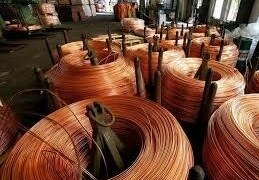By Michael Martina
BEIJING (Reuters) – The United States is not convinced China is willing to make sufficient progress on trade, the U.S. ambassador to China said on Friday, as the world’s two biggest economies remain locked in spiraling disputes.
U.S. President Donald Trump is set to impose tariffs on billions of dollars worth of Chinese imports on July 6 to punish China for what the United States says are intellectual property abuses.
The tariffs are likely to set off retaliation that could drive the two sides into a trade war.
Speaking at the opening of a financial forum in Beijing, the U.S. ambassador, Terry Branstad, said there was still a chance to address issues such as non-tariff barriers, loss of intellectual property and forced technology transfers.
“The administration is not convinced that the Chinese are willing to make enough progress soon enough,” Branstad said.
“I’m still hopeful that despite the fact that we are moving into these tariffs, that there is still a possibility that we can resolve some of the differences,” he said.
Branstad added that Trump and Chinese President Xi Jinping have good “chemistry”.
China unveiled on Thursday a long-anticipated easing of foreign investment curbs, including in the banking, agriculture, automotive and heavy industry sectors, as it moved to show it would fulfil pledges to open its markets further.
Branstad said there was “scepticism” in the United States that China would follow through on its pledges to truly open up in areas such as financial services.
“I think the concern is it’s been promised so many times, and it’s been delayed. So, we really want to see it happen and we want to see it happen now. Not three years from now or five years from now,” he said.
A strengthened review process by the Committee on Foreign Investments in the United States, or CFIUS, an interagency panel that checks the national security implications of transactions, was likely, Branstad said, adding that he thought that was the right way to deal with investment issues.
Trump said on Wednesday he would use a strengthened CFIUS process to thwart Chinese acquisitions of sensitive American technologies, a softer approach than imposing China-specific investment restrictions.
The Trump administration has been divided over the scope of curbs on foreign investment deals.
White House trade adviser Peter Navarro, a harsh China critic, has argued for China-specific restrictions using an emergency sanctions law, while Treasury Secretary Steven Mnuchin has favored a more global approach.
Fusion Media or anyone involved with Fusion Media will not accept any liability for loss or damage as a result of reliance on the information including data, quotes, charts and buy/sell signals contained within this website. Please be fully informed regarding the risks and costs associated with trading the financial markets, it is one of the riskiest investment forms possible.
Source: Investing.com



























